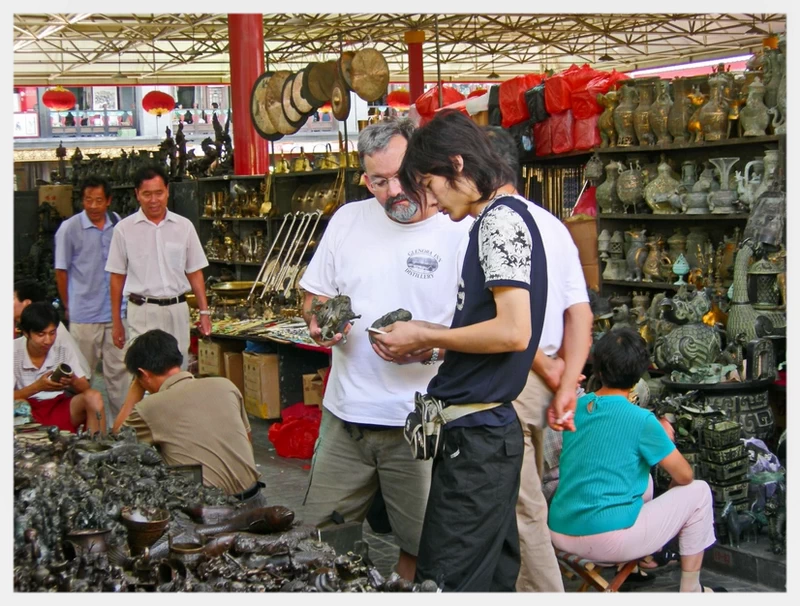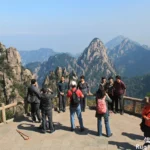Welcome to our guide on the best things to buy in Beijing! This article helps foreign tourists find perfect gifts and souvenirs in Beijing. Discover what to buy in Beijing, from traditional crafts to modern delights.
Whether you’re seeking Beijing souvenirs or unique Beijing gifts, we’ve got you covered. With detailed tips and recommendations, you’ll easily navigate the bustling markets and shops. Get ready to explore Beijing’s vibrant shopping scene and bring home memorable treasures. Read on to make your Beijing shopping experience enjoyable and rewarding. Let’s dive into the best gifts from Beijing!
Check out: 10 Best Markets in Beijing for more shopping information.
1. Cloisonne Ware
Beijing is famous for its beautiful cloisonné enamelware, which includes vases, jewelry, and decorative items. These pieces have intricate designs and vibrant colors.
Cloisonné is a traditional enamelware art form from Beijing. It features intricate designs made with thin metal wires filled with colored enamel. Cloisonné vases, bowls, and jewelry boxes make beautiful and unique souvenirs.
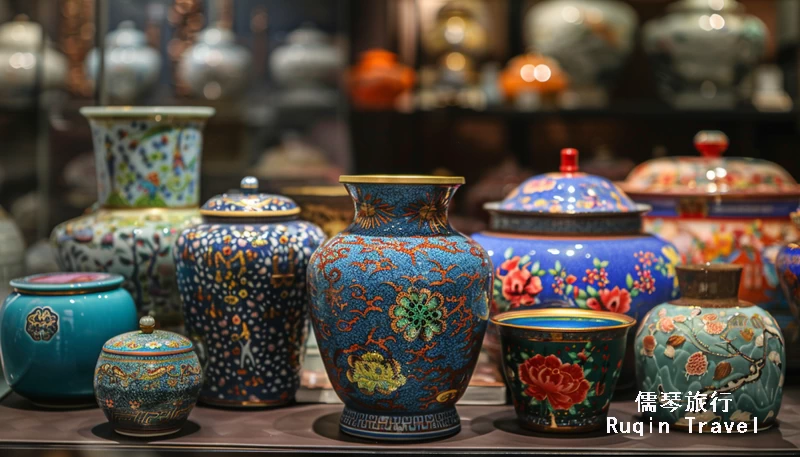
When shopping in Beijing, consider cloisonné ware for its beauty and craftsmanship. These items are perfect for gifts in Beijing and will remind you of your visit to Beijing.
Where to find it:
1. Dashilan Street, Qianmen
2. Beijing Enamel Factory
Address: 10 Anlelin Rd, Dongcheng, Beijing, China
Metro: Subway Line 14 and get off at Jingtai Station
3. Beijing Gongmei Mansion
Address: 200 Wangfujing Street, Dongcheng, Beijing
Metro: Taking Subway Line 1 and get off at Wangfujing Station
2. Peking Opera Masks
Peking Opera is a traditional form of Chinese theater known for its colorful and elaborate masks. These masks are integral to the performances, each representing different characters. When visiting Beijing, you will find many replicas of these masks, making them vibrant and decorative souvenirs.
These decorative masks from Beijing are unique souvenirs, perfect for those interested in Chinese culture. They symbolize the rich heritage of Peking Opera, showcasing the artistry and tradition of this theatrical form. Additionally, the masks come in various designs and colors, making them attractive keepsakes.
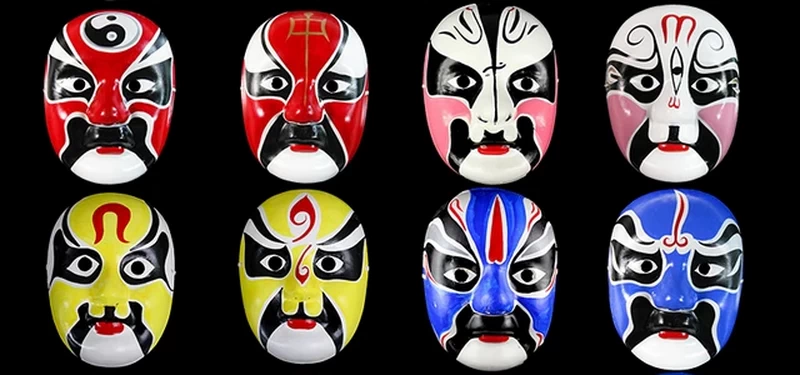
When shopping for Beijing souvenirs, consider buying Peking Opera Masks. These masks are not only beautiful but also hold cultural significance. They serve as excellent conversation pieces and reminders of your trip to Beijing. By bringing home a Peking Opera Mask, you carry a piece of Chinese history and art with you.
Where to find it:
1. Sold in many tourist kiosks in the major attractions in Beijing
2.Beijing Gongmei Mansion
Address: 200 Wangfujing Street, Dongcheng, Beijing
Metro: Subway Line 1 and get off at Wangfujing Station
3. Chang’an Grand Theatre
Address: 7 Chang’an Ave, Dongcheng, Beijing
Subway: Subway line1 and exit from Exit A at Jianguomen Station and walk 200 m to the west.
3. Chinese Tea
Beijing is home to numerous tea shops, offering a wide variety of high-quality Chinese teas. When shopping for Beijing gifts, consider bringing back some tea leaves. Popular choices include green tea and jasmine tea, which let you enjoy a taste of China at home.
Chinese tea is renowned worldwide, and you can find many varieties in Beijing. From green and black teas to floral and herbal options, the selection is vast. Visiting local tea shops provides an excellent opportunity to explore these different flavors and aromas.
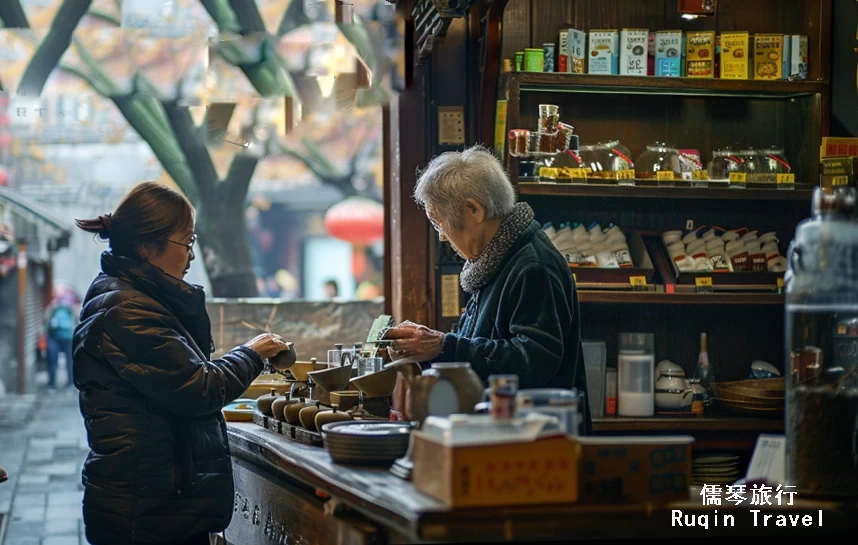
When buying Chinese tea in Beijing, look for loose-leaf tea or beautifully crafted tea sets. Loose-leaf tea offers a rich and authentic experience, while tea sets make perfect gifts. By bringing home these items, you not only have a delightful beverage but also a memorable souvenir of your trip.
Where to find it:
1. Wuyutai Tea House
Address: 186 Wangfujing Street, Dongcheng, Beijing
Subway: Subway Line 1 and get off at Wangfujing Station
2. Zhangyiyuan Tea Shop
Address No. 22, Dashilan, Qianmen Street, Xuanwu District, Beijing
Subway:Subway Line 2 and get off at Qianmen Station
4. Silk Products
Silk holds great value in Chinese culture, and Beijing is famous for its silk products. When shopping for Beijing gifts, consider purchasing silk scarves, clothing, or accessories. These items are not only beautiful but also carry cultural significance.
China is renowned for its silk, and Beijing offers a variety of silk products. You can find exquisite scarves, elegant clothing, and luxurious bed linens. High-quality silk items make excellent souvenirs, reflecting both the craftsmanship and tradition of Chinese culture.
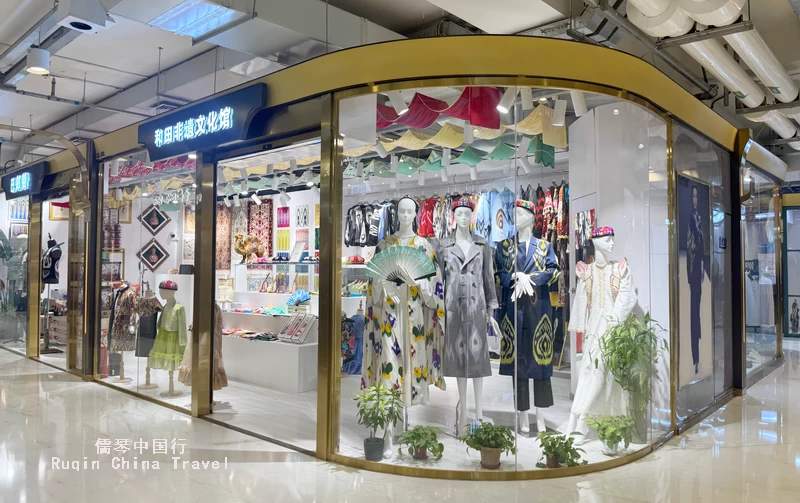
When buying silk products in Beijing, look for reputable shops to ensure the best quality. Silk scarves and clothing are stylish and practical gifts. Additionally, silk bed linens provide a touch of luxury and comfort. Bringing home these items will remind you of your trip to Beijing and its rich cultural heritage.
Where to find it:
1.Silk Market: Located at 8 Xiushui East Street in the Chaoyang District, the Silk Street Market is easily accessible. The most convenient way is by subway: take line 1 to Yonganli Station and exit from Exit A.
2. Ruifuxiang Silk Store: At present Ruifuxiang flag store is located in the north side of Beijing Dashilan Street in Qianmen Street, Beijing.
5. Chinese Calligraphy Art
Calligraphy is an important part of Chinese culture, and you can find beautifully crafted calligraphy scrolls or personalized pieces created by local artists.
Chinese calligraphy dates back to ancient China and is considered one of the highest forms of visual artistic expression. It holds a significant position in Chinese culture, reflecting the country’s rich heritage and deep reverence for the written word.
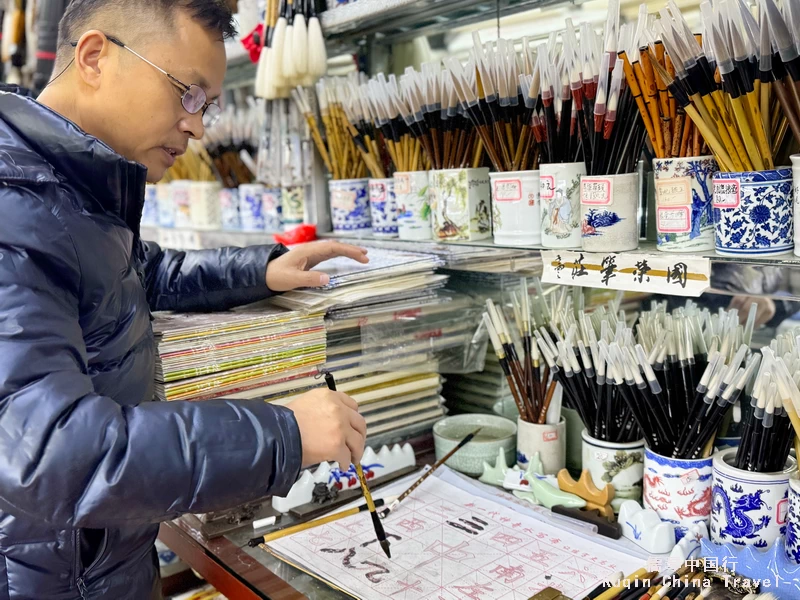
Chinese calligraphy encompasses a wide range of styles and scripts, each with its own distinct characteristics. The most well-known calligraphy styles include seal script, clerical script, regular script, running script, and cursive script. Each style showcases different stroke techniques, structure, and aesthetic elements.
Where to find it:
Liulichang Antique Street: On both sides of the street there are about 100 storefronts and vendors’ stalls selling collectibles and art supplies.
6. Chinese Knots
These intricate and colorful knots are often used as decorative items or symbols of good luck and prosperity. They come in various sizes and designs.
Chinese knots are believed to have originated during the Tang Dynasty (618-907 AD) and have since become an important aspect of Chinese decorative arts. The knots are known for their auspicious symbolism and are considered talismans for good luck, longevity, prosperity, and happiness.
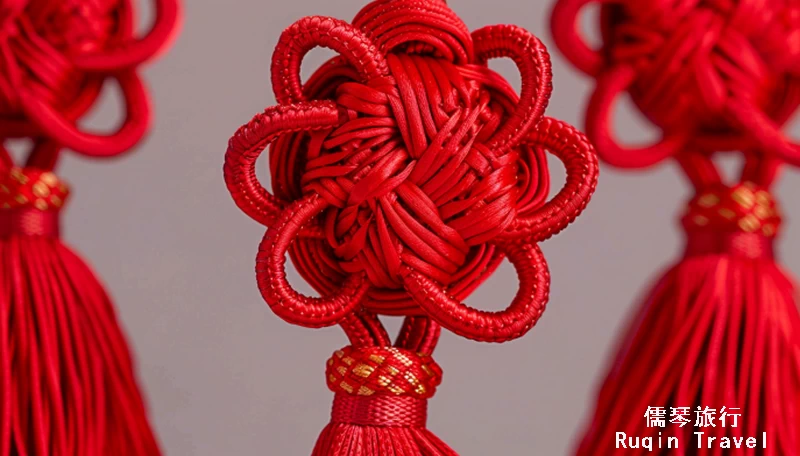
Chinese knots are typically made using cords made of silk, cotton, or nylon. These cords are then intricately woven and tied using a variety of knotting techniques. Some common knotting techniques include the button knot, the auspicious knot, the double coin knot, and the butterfly knot.
7. Paper Cuts
Chinese paper cutting is an ancient art form. These intricate designs are often used as decorations during Chinese New Year. You can find various themed paper cuts as souvenirs.
Chinese paper cutting originated over 1,500 years ago during the Eastern Han Dynasty (25-220 AD) and has since become a popular folk art. It holds deep cultural and symbolic meaning in Chinese culture, often used for decoration, celebration, and to convey blessings and good luck.
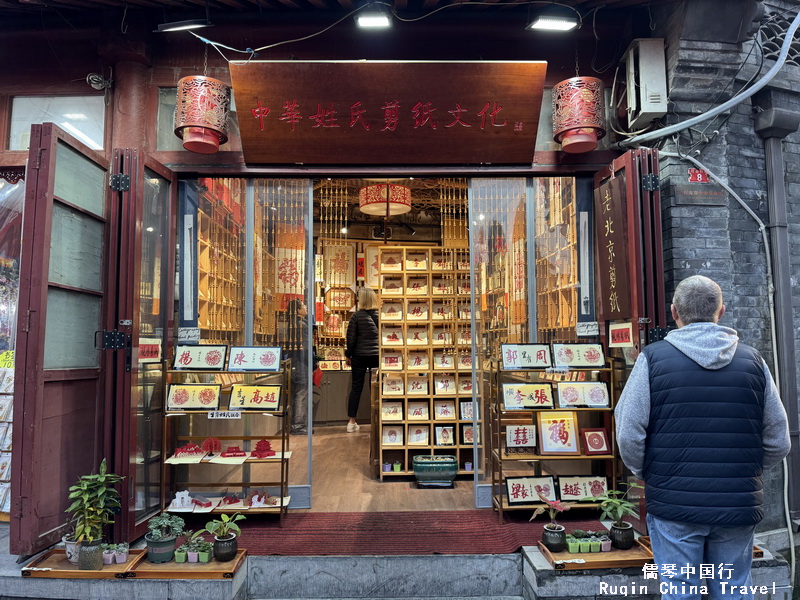
Chinese paper cuts are traditionally crafted using colored, thin paper. The paper is folded into halves or quarters, and symmetrical designs are meticulously cut out using special scissors or sharp knives. Nowadays, artists also use laser cutting or stencils for more intricate and detailed designs.
Where to find it:
1) Yandai Xiejie, Shichahai
2) Beijing Gongmei Mansion
Address: 200 Wangfujing Street, Dongcheng, Beijing
Metro: Subway Line 1 and get off at Wangfujing Station
8. Great Wall Souvenirs
When visiting Beijing, one of the most iconic and memorable souvenirs you can bring back is related to the Great Wall of China.
Miniature replicas of the Great Wall are popular souvenirs. These can come in various forms, including keychains, snow globes, models, or decorative items. They serve as a reminder of your visit and can be displayed at home or in the office.
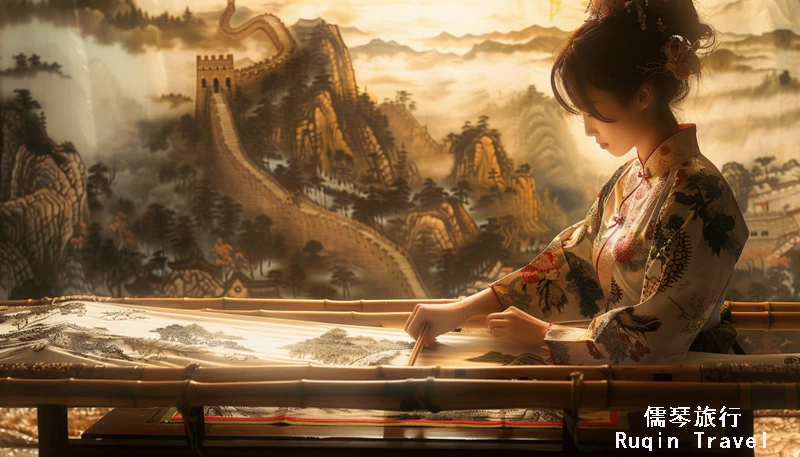
Great Wall Postcards and Prints: Look for postcards and prints featuring stunning images of the Great Wall. Whether you prefer vintage or contemporary designs, these souvenirs capture the grandeur of the Great Wall and can be framed or collected in a scrapbook.
Where to find it:
1.Tourist Kiosks at the major sections of the Great Wall
2. Beijing Gongmei Mansion
Address: 200 Wangfujing Street, Dongcheng, Beijing
Metro: Subway Line 1 and get off at Wangfujing Station
9. Mao Zedong Memorabilia
For history enthusiasts, Beijing offers various antique markets where you can find Mao memorabilia, such as posters, Mao badges, and vintage propaganda materials.
Mao Zedong, the founding father of the People’s Republic of China, holds significant historical importance in China. However, it’s important to approach the subject of Mao Zedong memorabilia with sensitivity and respect.
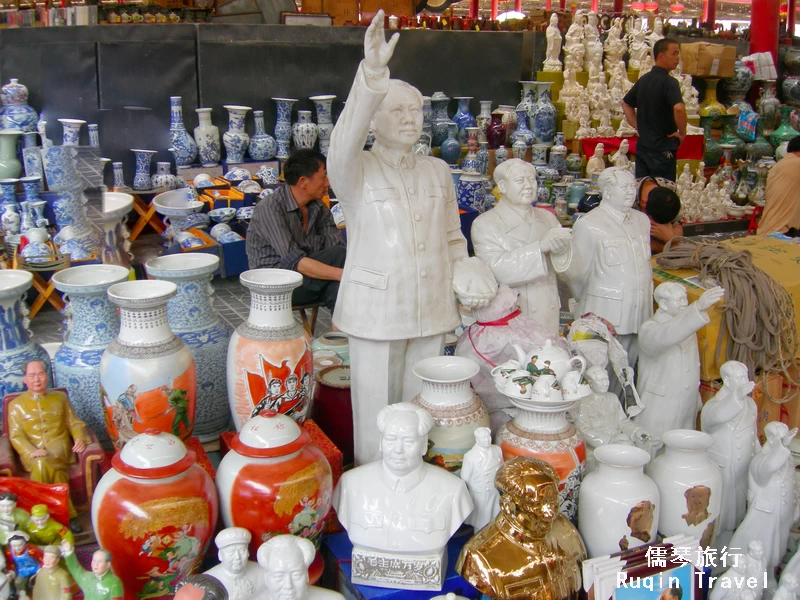
Mao Zedong’s Mausoleum, located in Tiananmen Square, is a popular attraction in Beijing. Visitors can pay their respects to Mao Zedong by visiting his preserved body, which is on display. This is not a place to purchase memorabilia, but it holds great historical and cultural significance.
Mao Zedong Souvenirs: Various souvenir shops and markets in Beijing sell Mao Zedong-related memorabilia. These items can include posters, keychains, pins, and small figurines featuring Mao Zedong. It’s important to note that these items should be treated with respect and understanding of their historical context.
Suggest going to Panjiayuan Market( Panjiayuan Antique Market) to get Mao memorabilia.
10. Beijing Specialties
Want a taste of Beijing at home? These specialties bring authentic flavors and cultural heritage straight to your table!
1) Classic Delicacies
Beijing Roast Duck (北京烤鸭, Vacuum-Packed)
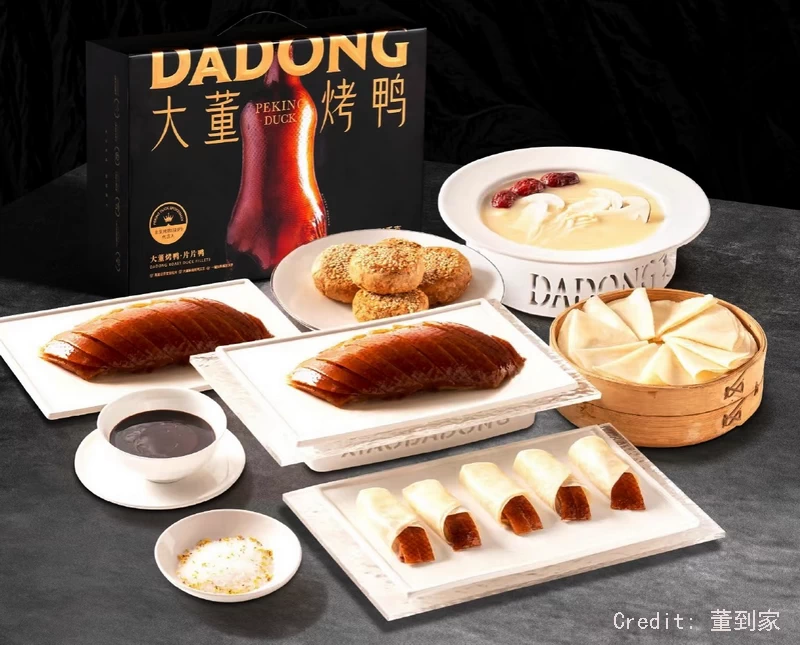
- Top Brands: Quanjude (全聚德), Da Dong (大董烤鸭) – comes with sauce and lotus leaf pancakes
- Where to Buy: Quanjude Qianmen Branch, Wangfujing Food Market, Airport Duty-Free Shops
- Price Range: ¥200-400 per set (includes vacuum-packed duck and sauce)
Nothing says “Beijing” quite like its famous roast duck. The crispy, golden skin and tender, juicy meat make it a must-try. Vacuum-packed versions allow you to take this iconic dish home and enjoy it anytime.
Daoxiangcun Pastries (稻香村糕点)
- Must-Try: Niutongbing (牛舌饼, Ox Tongue Pastry), Zaohuasu (枣花酥, Jujube Flower Pastry), Jingbajian (京八件, Eight-Piece Pastry Gift Box) – look for the “Sanhe” (三禾) logo for authenticity
- Where to Buy: Official Daoxiangcun stores (like Dongsi North Street branch), Zero No. 1 specialty store
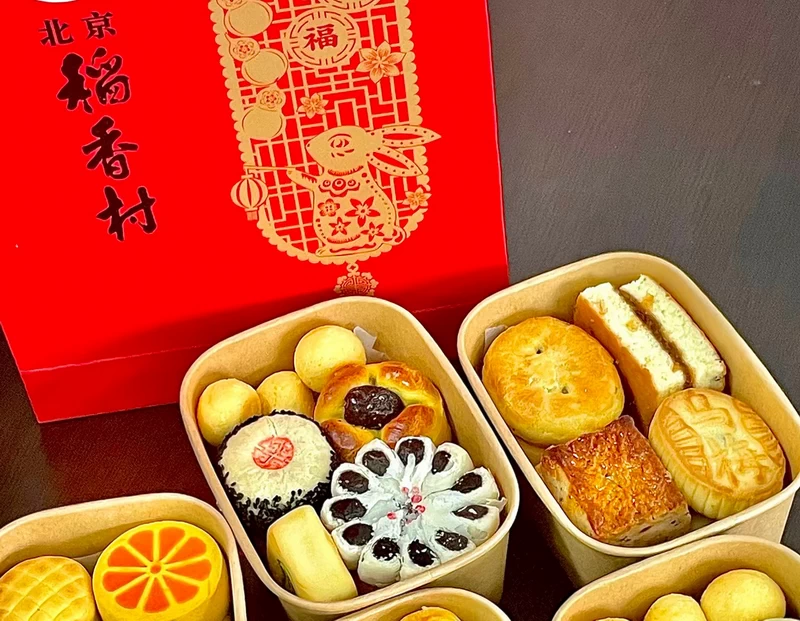
A bite of Daoxiangcun pastries transports you to old Beijing. These traditional snacks are flaky, mildly sweet, and perfect with tea. Be sure to get the authentic ones with the “Sanhe” logo!
Liubiju Pickled Vegetables (六必居酱菜)
- Best Picks: Maren Jinsi (麻仁金丝, Sesame Shredded Radish), Babao Cai (八宝菜, Eight-Treasure Pickles) – comes in portable packaging
- Where to Buy: Liubiju’s Qianmen Dashilan flagship store, major supermarkets
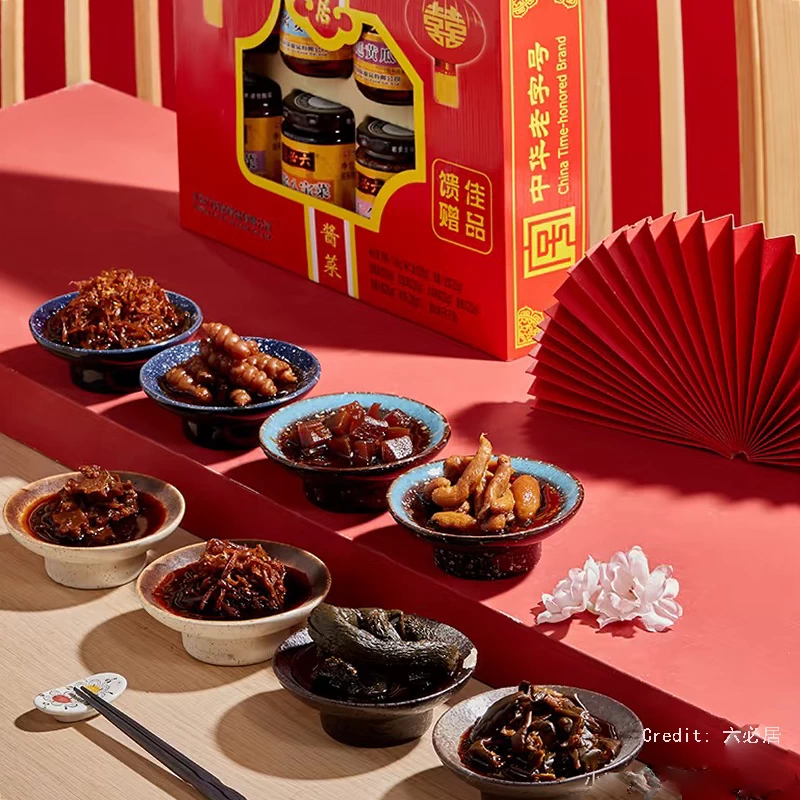
Liubiju has been making pickles for over 600 years! These sweet, sour, and umami-packed delicacies are perfect as a side dish or mixed into a meal for an authentic Beijing flavor.
Tianfuhao Braised Pork Knuckle (天福号酱肘子)
- Why You’ll Love It: Vacuum-sealed, perfectly balanced fat and lean meat, best paired with crispy shaobing (烧饼, Chinese flatbread)
- Where to Buy: Tianfuhao Wangfujing Department Store branch, Hema Fresh
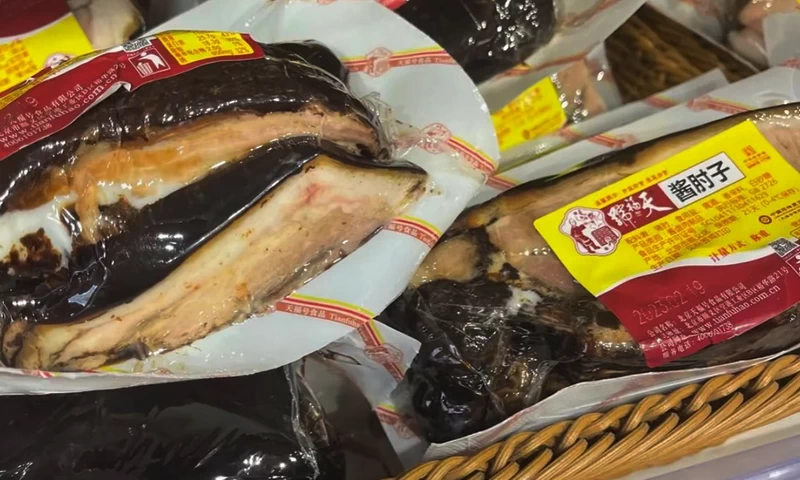
Rich, savory, and melt-in-your-mouth delicious, Tianfuhao’s braised pork knuckle is a Beijing specialty with history dating back to the Qing Dynasty. It’s an irresistible souvenir for meat lovers!
2) Traditional Souvenir Treats
Jingbajian Gift Box (京八件礼盒)
- What’s Inside: A selection of eight classic Beijing pastries, including Fuzi Bing (福字饼, Fortune Cookie Pastry), Zaoni Su (枣泥酥, Jujube Paste Pastry), and Lǘdagun (驴打滚, Rolling Donkey)
- Top Brands: Daoxiangcun Zero No. 1 (with cultural design packaging), Bai Nian Yi Li (百年义利)
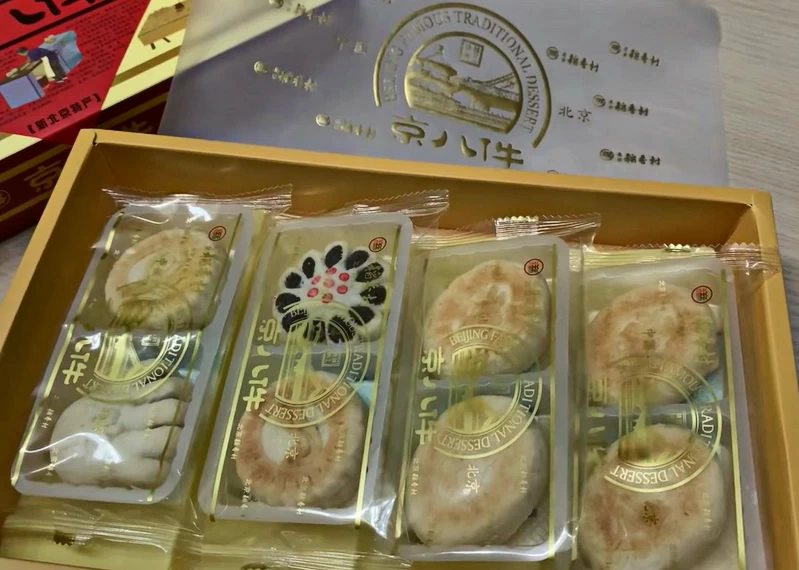
This beautifully packaged set offers a taste of Beijing’s past in every bite. Each pastry has a unique texture and filling, making it an elegant and thoughtful gift.
Fuling Jiabing (茯苓夹饼, Tuckahoe Crisp Cake)
- Why It’s Special: Paper-thin pastry filled with walnuts and honey, pairs perfectly with tea
- Where to Buy: Huguosi Snacks flagship store, Nanluoguxiang specialty shops
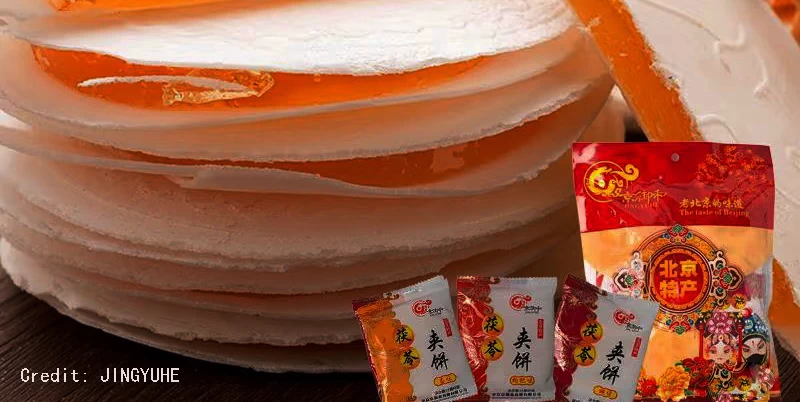
Light, crisp, and mildly sweet, this traditional Beijing snack was once an imperial treat. It’s a great choice for those who enjoy delicate, refined flavors.
Lüdagun & Aiwowo (驴打滚 / 艾窝窝, Sticky Rice Rolls)
- Convenient Packaging: Individually vacuum-sealed, stays fresh for 7 days
- Where to Buy: Niujie Halal Supermarket, Huguosi Snacks chain stores
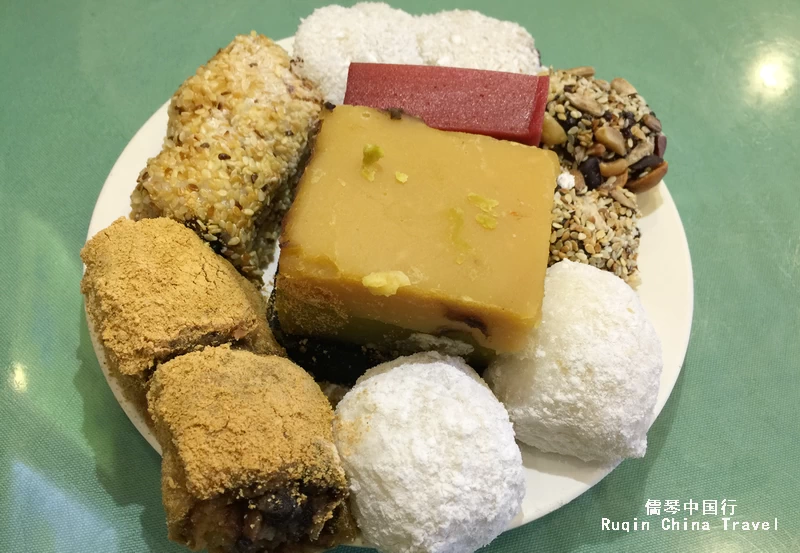
These soft, chewy rice cakes are coated with soybean flour (Lüdagun) or stuffed with nuts and sesame (Aiwowo). They’re nostalgic Beijing street snacks with a delightful texture and flavor.
11. Top Palace Museum Cultural & Creative Products
Beijing’s Palace Museum (故宫, Forbidden City) offers a stunning collection of creative souvenirs that blend history, art, and a touch of fun. Whether you’re a history buff, an art lover, or just looking for a unique gift, there’s something for everyone!
1) The Imperial Cats Collection (故宫猫系列) 🐱
Inspired by the royal cats of the Ming and Qing dynasties, this collection is a must-have for cat lovers and history fans alike.
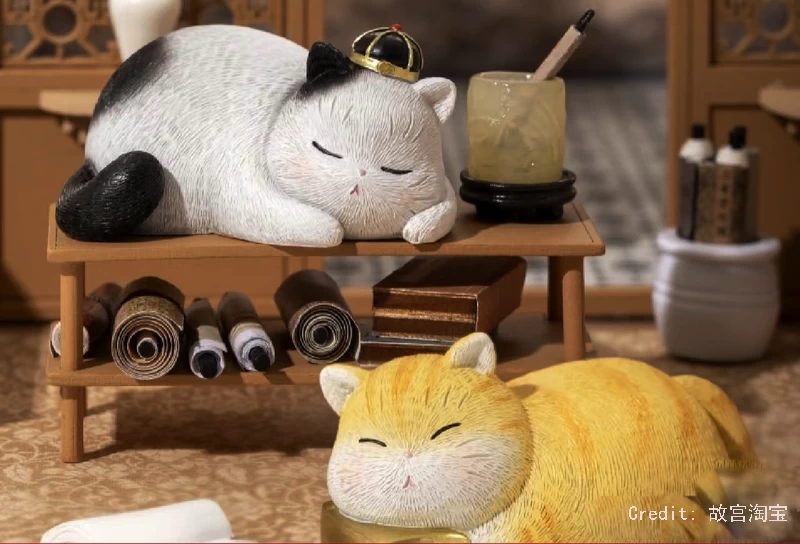
- Figurines (摆件) – These adorable cat figurines are modeled after the palace’s legendary feline residents. They come in Ming and Qing-style designs, making them perfect for desk decor or as quirky photo props.
- Blind Box (盲盒) – Love surprises? The “Jiangshan Cat” Blind Box features elements from the famous “A Thousand Li of Rivers and Mountains” (千里江山图) painting. Each box contains a unique design, adding an element of mystery and fun to your collection.
- Ceramic Mug (陶瓷杯) – This royal-style coffee mug features a cute dragon robe pattern. It comes with a cork coaster inspired by the “A Thousand Li of Rivers and Mountains” painting, blending art with everyday use.
2) “A Thousand Li of Rivers and Mountains” Collection (千里江山图系列) 🎨
This collection celebrates one of China’s greatest landscape paintings with beautifully designed accessories.
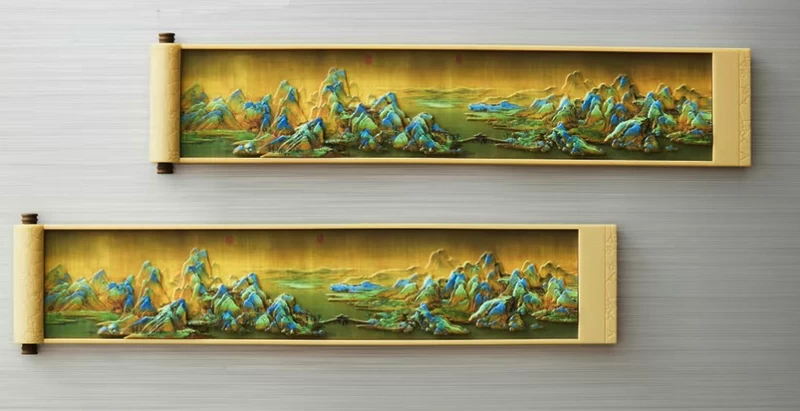
- Silk Scarf (桑蚕丝巾) – Made from premium mulberry silk, this scarf captures the painting’s fine details using digital micro-spray technology. It’s stylish, elegant, and makes a great fashion piece or collectible.
- Metal Bookmark (金属书签) – This intricately designed bookmark features the 24 solar terms (节气) theme, with cut-out details of cultural landmarks like the Palace Museum’s famous glass walkway.
- Art Fan (艺术折扇) – Combining traditional Hua Luo (花罗) silk craftsmanship with handmade wooden fan ribs, this fan is both practical and artistic. Whether for summer use or as a display piece, it’s a timeless treasure.
3) Imperial Life Collection (宫廷生活主题) 👑
Experience the elegance of palace life with these unique keepsakes.
- Imperial Kitchen Fridge Magnets (御膳房冰箱贴) – Featuring detailed relief designs of palace landmarks like the Grand Hall (大雄宝殿) and Wolong Pine (卧龙松), these magnets bring a royal touch to your kitchen.
- “Timeless Beauty” Makeup Gift Set (朱颜永驻美妆礼盒) – Inspired by Qing Dynasty imperial accessories, this beautifully crafted set includes an ornate lipstick case, a delicate brooch, and more beauty accessories. It’s a stunning gift for anyone who loves historical elegance.
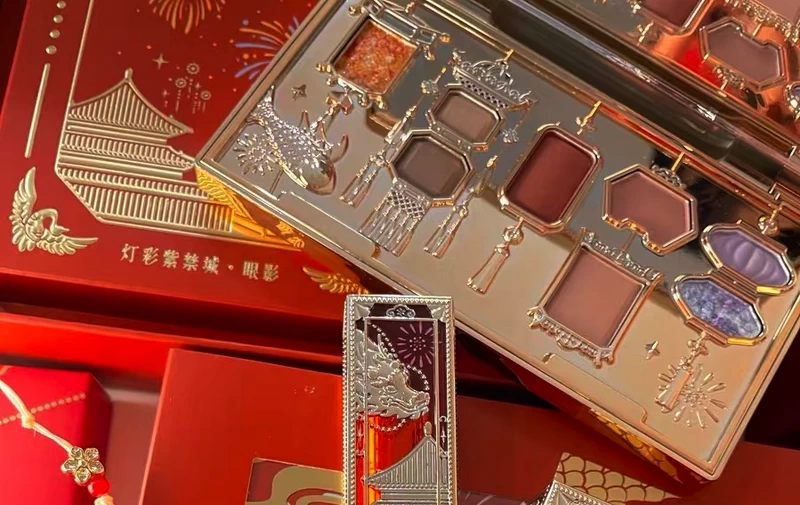
4) Where to Buy (选购指南) 🛍️
- Best Palace Museum Shops:
- Icehouse Bookstore (冰窖书店) – Great for blind boxes
- Palace Museum Creative Shops (故宫文创商店) – Locations at Donghuamen (东华门) & Shenwumen (神武门)
- Best Portable Gifts:
- Bookmarks & Fridge Magnets (¥10-50) – Small, lightweight, and affordable
- Silk Scarves & Art Fans (¥150-300) – Stylish and collectible
🛍️ Private Full Day Beijing Shopping Tour
Beijing’s vibrant markets can feel overwhelming for first-time visitors—but with a savvy local guide at your side, you’ll shop like a pro. This full-day private shopping tour takes you to some of the city’s top retail spots: hunt for pearls and souvenirs at Hongqiao Market, browse traditional arts and antiques at Panjiayuan Market, and explore custom tailoring options at the famous Silk Street (Xiushui Market).
Along the way, your guide will share insider tips on bargaining, help you communicate with vendors, and ensure you get the best deals.
🔗 Book Your Beijing Shopping Tour
🧾 Tour Highlights:
- Shop for unique Chinese ingredients at a local Beijing supermarket
- Choose between a budget-friendly subway tour or comfortable private vehicle
- Hotel pick-up included — no need to find a meeting point
- Fun for all ages — special discounts available for children under 12
More Beijing Travel Guides
Planning your Beijing tour? Our “Beijing Travel Guide“ section offers essential advice to help you navigate the city like a pro. From transportation tips and local customs to insider recommendations for hidden gems, these travel tips will ensure you have a smooth, enjoyable, and unforgettable experience in China’s vibrant capital. Let us guide you through the best practices for exploring Beijing with confidence!

